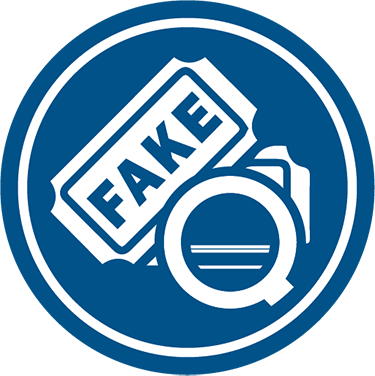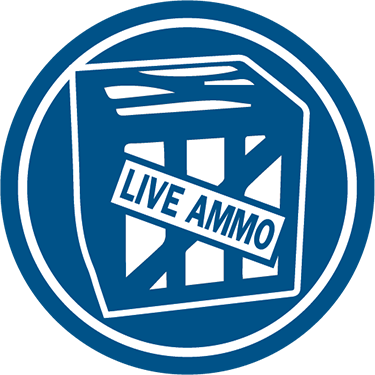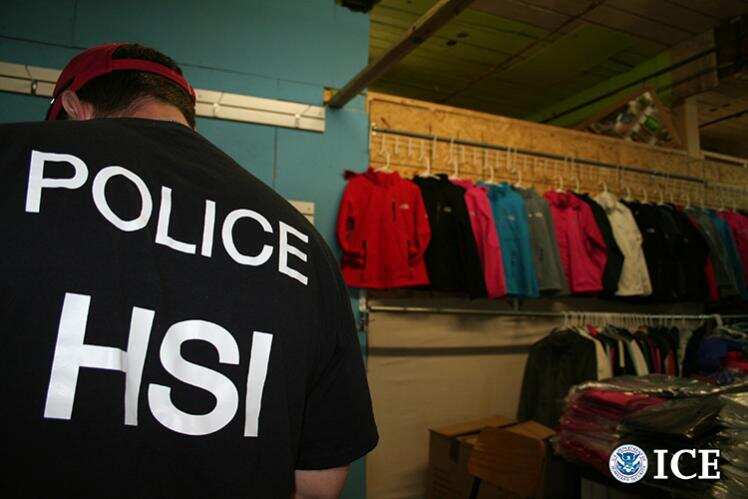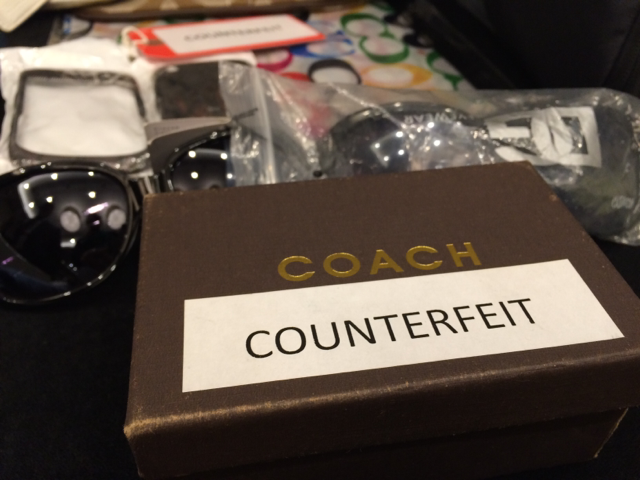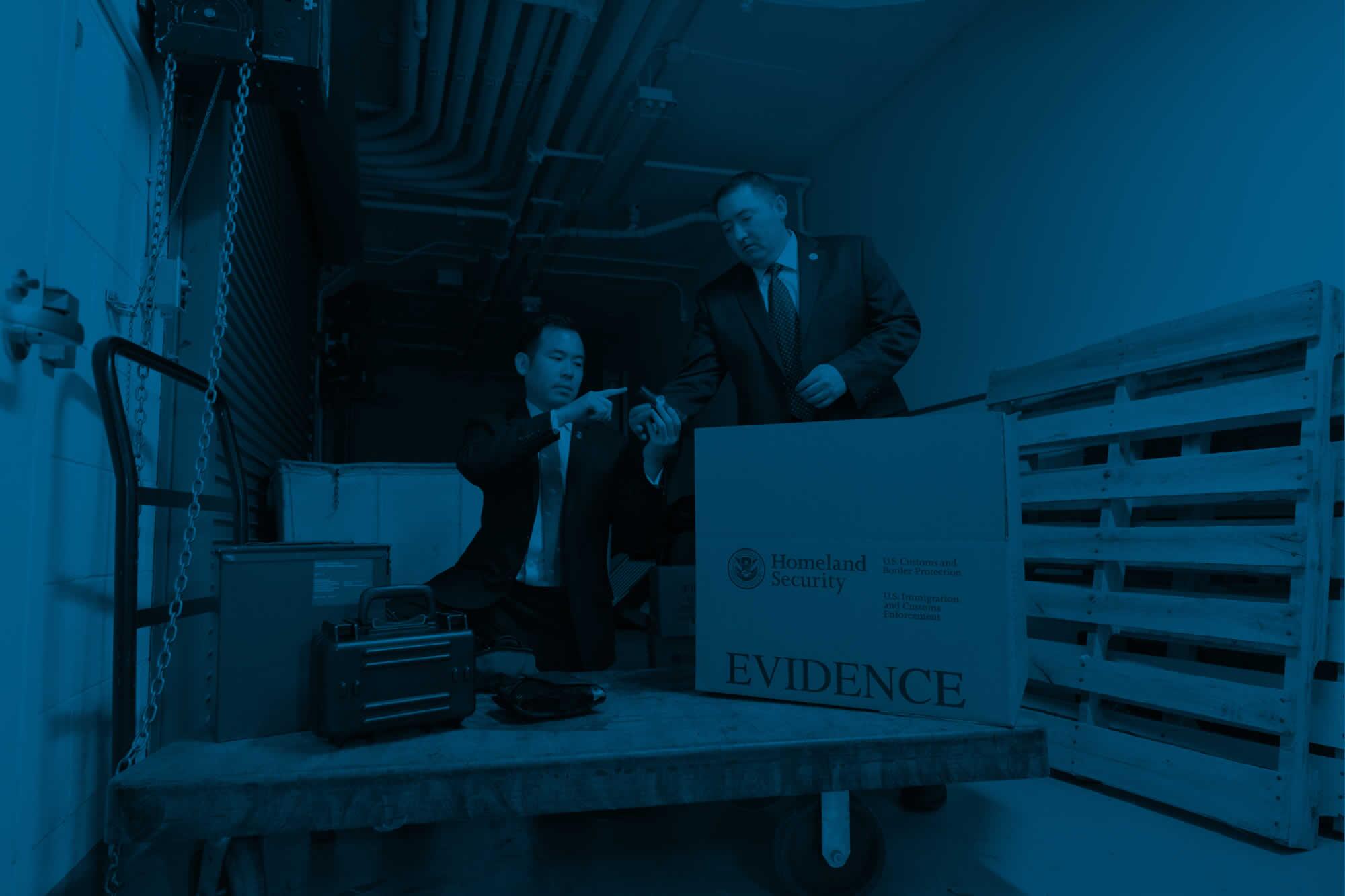
Overview
The mission of U.S. Immigration and Custom’s Enforcement (ICE) Homeland Security Investigations (HSI) Global Trade and Investigations (GTI) division is to provide oversight and support for investigations of U.S. import and export laws to ensure national security, protect the public’s health and safety, stop predatory and unfair trade practices and to prevent terrorists, foreign entities and criminal organizations from illegally trafficking weapons of mass destruction and transferring critical technology and arms to restricted or prohibited persons, groups or nations.
GTI’s components include
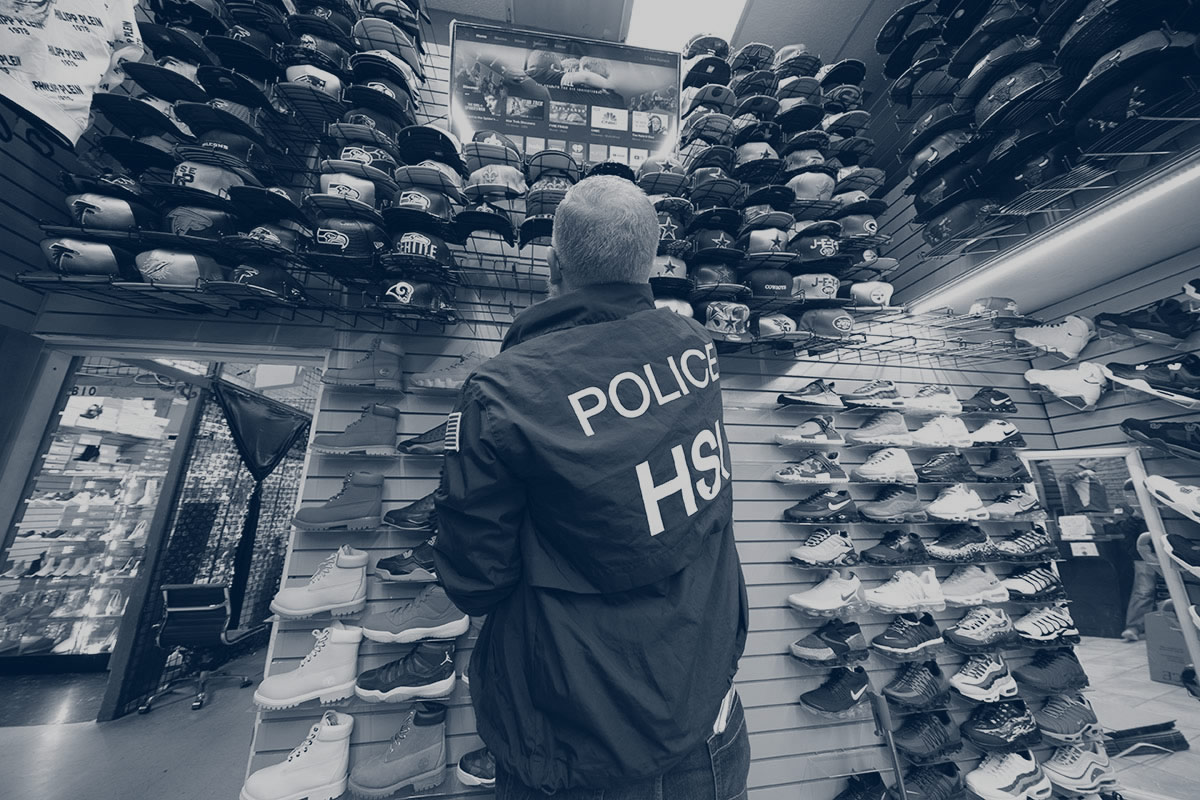
National Intellectual Property Rights Coordination Center
The HSI-led National Intellectual Property Rights Coordination Center (IPR Center) stands at the forefront of America's response to intellectual property theft and its enforcement of international trade laws. Its efforts have a direct impact on the nation's health and safety, and economy.
The IPR Center brings together 25 key federal and international agencies in a task force setting using a three-pronged approach to combat intellectual property and commercial fraud crimes: interdiction, investigation, and outreach. This enables the IPR Center to leverage the resources, skills and authorities of each partner.
The IPR Center is led by an HSI director, along with deputy directors from HSI, the Federal Bureau Investigation and U.S. Customs and Border Protection (CBP).
Visit the IPR Center Website for more information.
Intellectual Property Unit

The Intellectual Property Unit is composed of Intellectual Property and Intelligence sections. The Intellectual Property section provides programmatic oversight and guidance for the intellectual property program. This section supports the field offices, which conduct criminal investigations with the purpose of disrupting and dismantling the criminal organizations that commit intellectual property theft. The unit also coordinates with a broad range of government agencies, businesses and other stakeholders impacted by the theft of intellectual property. Additionally, this section recommends effective changes to policies and laws that govern this issue.
In addition to proactively developing leads, the Intelligence section receives, vets, and adds value to investigative leads received from industry, law enforcement and the public. This section also promotes the sharing of information and facilitates the deconfliction of investigative information among the IPR Center’s 25 partner agencies. To maximize effort, the Intelligence section also sends information to industry partners for civil and administrative action.
The Intellectual Property Unit’s objectives are: 1) Ensure public safety and national security by preventing dangerous and harmful goods from entering the stream of commerce; 2) Promote the integrity of the trade process; and 3) Use resources in an efficient and intelligent manner. The Intellectual Property Unit achieves these objectives through productive partnerships with public and private sectors, and the management of numerous initiatives and interdiction efforts that are designed to combat the infiltration of counterfeits that pose a risk to the health and safety of the American public or could potentially harm the economy of this country. A brief synopsis of these initiatives is as follows:
- Operation Apothecary targets the smuggling, illegal importation and/or sale of unapproved, counterfeit or adulterated pharmaceuticals in the United States.
- Operation Chain Reaction targets counterfeit goods entering the supply chains of the Department of Defense (DOD) and other U.S. Government agencies. These counterfeits pose a health and safety risk because they can potentially delay DOD missions, affect the reliability of weapon systems, imperil the safety of service members, and endanger the integrity of sensitive data and secure networks.
- Operation Engine Newity focuses on securing the supply chains of automotive and other heavy industry from counterfeit components. The proliferation of counterfeit parts, including airbags, bearings, brake pads, accelerator arms, and windshields, poses a significant health and safety threat to end users. It also impacts the economic growth of businesses and impacts consumers through lost revenue, downtime, and replacement costs. Operation Engine Newity collaborates with industry through the Automotive Anti-Counterfeit Council (A2C2).
- Operation In Our Sites (IOS) addresses illicit cyber commerce and the sale of counterfeit products through infringing internet websites. IOS is focused on developing long-term investigations that identify targets, assets, and financial schemes used in operating these websites.
- Operation Body Armor addresses the illegal production, illegal importation, and/or sale of counterfeit personal healthcare and beauty products, such as cosmetics or perfumes.
- Operation Surge Protector targets the sale and trafficking of counterfeit consumer electronics and technology products, such as headphones, smartphones, power adaptors, batteries and charging cords.
- Operation Team Player targets the sale and trafficking of counterfeit sports merchandise, apparel, and tickets. Through Team Player, the IPR Center coordinates with Major League Baseball, the National Hockey League, National Collegiate Athletic Association, the National Basketball Association, and the National Football League.
HSI Commercial Fraud Unit
Trade enforcement protects our nation's economy from trade practices, commercial enterprises and imports that pose a threat to the safety of American consumers and the environment.
The HSI Commercial Fraud Unit oversees HSI’s trade programs that investigate a variety of trade fraud schemes. These include environmental crimes, wildlife trafficking, tobacco and textile smuggling, forced child and prison labor, antidumping and countervailing duty evasion and violations of free-trade agreements.
The IPR Center also promotes a number of educational and training programs to strengthen enforcement efforts in the field:
Textile Production Verification Teams verify the manufacturing ability of foreign textile factories. The teams enable HSI and CBP to work with international governments to identify factories that are not in compliance with existing trade agreements and programs designed to develop international economies.
Forced Labor Program
HSI’s Forced Labor Program coordinates investigations into allegations of forced labor (including forced child labor) relating either to the manufacturing or production of goods overseas that are exported to the United States, or, labor here in the United States that results from coercion, debt bondage/indentured labor, or other non-voluntary means of forcing an individual to provide work or a service.
Outreach and Training
The IPR Center engages in partnerships with the private sector to combat IP theft through its Operation Joint Venture (OJV) initiative. This IPR Center-led outreach initiative is designed to increase information sharing with public and private sectors to combat the illegal importation and distribution of counterfeit, substandard, and tainted goods. OJV targets rights holders, manufacturers, importers, customs brokers, freight forwarders, bonded facilities, carriers, and others to discuss the IPR Center’s priorities of protecting public health and safety, the economy, and securing the government’s supply chain. Through outreach and public engagement, the IPR Center raises the public’s awareness of the dangers of trade-based violations, such as IP theft, while serving as a public point of contact for investigative leads. The IPR Center’s target audience includes a broad spectrum of industries and government agencies including, but not limited to: pharmaceutical, entertainment, wearing apparel, sports, microelectronic and automobile manufacturers, customs bonded entities, importers, and law enforcement officials.
The section trains law enforcement partners to combat intellectual property theft and works closely with partner agencies and attaché networks to deliver training and support through organizations like the World Customs Organization and INTERPOL. Additionally, the center hosts visits by international law enforcement and customs officers through the Department of State's International Visitor Program.
Intellectual Property and Trade Enforcement Investigation Course is offered to provide training to HSI and CBP personnel on IPR and trade fraud detection and investigations. The class, which is composed of HSI and CBP personnel includes exercises and discussions that draw upon the experience of all participants.
IPR Center Newsletter is a monthly publication to keep stakeholders up-to-date on the most significant IPR Center enforcement efforts and outreach activities
Victim Impact Stories include a catalog of real-life examples used to educate the private sector and the public on the health and safety risks and impacts of the use of counterfeits.
Report IP Theft Button, which has been placed on many private sector websites, is another on-going initiative with industry in the fight against IP theft and trade fraud. The button provides another tool for referrals of information between the private sector and law enforcement.

Counterproliferation Investigations Program
HSI special agents assigned to the agency's counterproliferation investigations (CPI) program are on the front lines of the U.S. government's fight to prevent the illicit export and transfer of sensitive military and dual use technology and defense articles to transnational criminal organizations, terrorist groups, adversarial nation states, and other nefarious entities operating around the world. As the only U.S. government agency with full statutory authority to enforce all U.S. export control laws relating to military items, controlled dual-use goods, and sanctions violations, HSI stands at the forefront of the government’s counterproliferation mission. HSI’s export enforcement mandate and its unique and wide ranging international, undercover, customs and border search authorities enable HSI to effectively detect, disrupt, and dismantle procurement networks seeking to illicitly acquire an array of controlled military equipment and strategic technology, including advanced conventional weapons, materials for missile development, and precursors for biological, chemical, and nuclear weapons. These efforts are aligned around CPI’s primary goals of protecting the U.S. warfighter and upholding strategic U.S. defense superiority; securing the border and the homeland; and safeguarding legitimate trade, industry, and academia.
CPI Mission, Primary Statutes and Key Authorities
The CPI program mission has three main prongs:
- Combat the illegal export and proliferation of sensitive U.S. military and dual-use equipment, technology, and services.
- Protect American innovation and strategic defense and economic superiority; and
- Inflict maximum disruptive effects against adversaries, sanctions violators, and other malign actors.
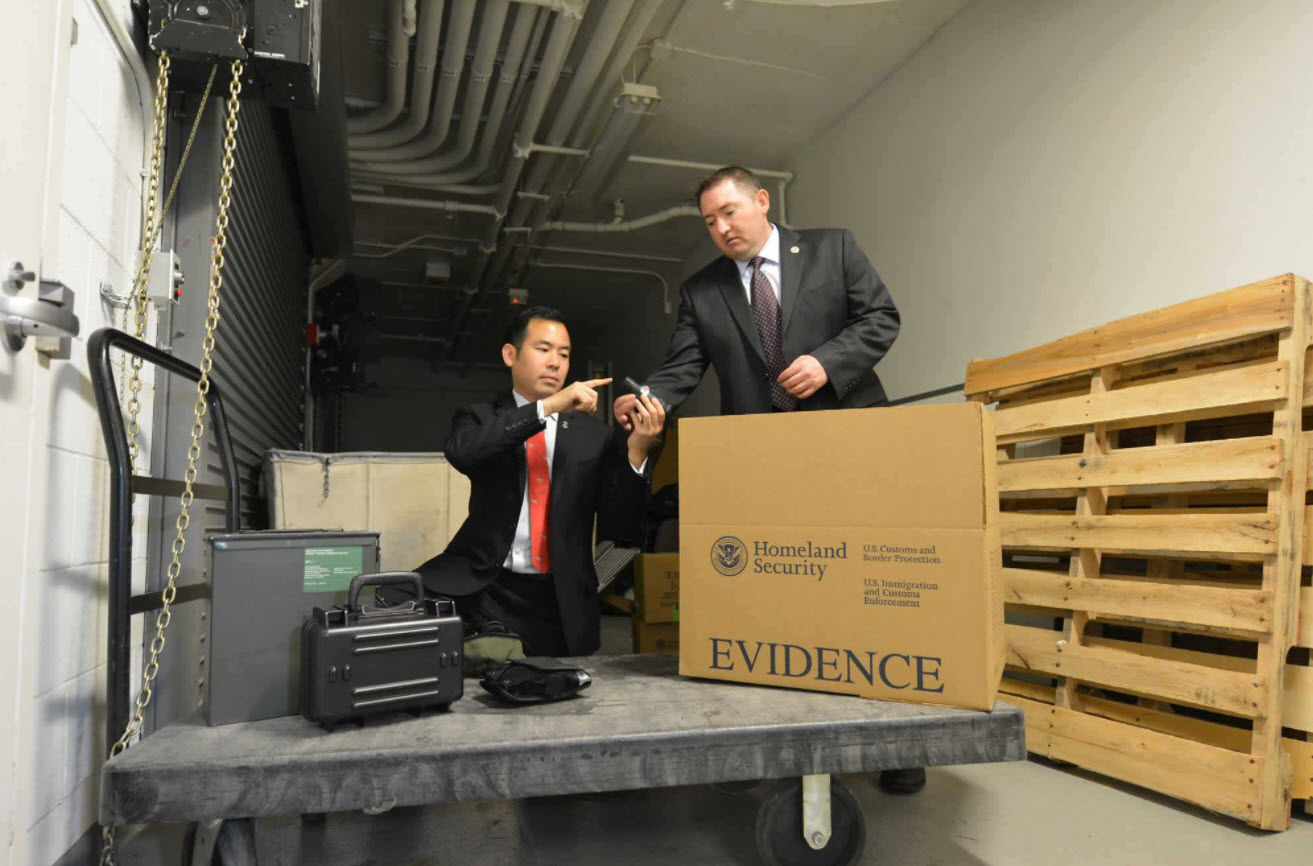
HSI maintains the broadest investigative and enforcement authorities of any federal law enforcement agency to investigate criminal violations of all U.S. export laws and is uniquely positioned to accomplish the agency’s counterproliferation mission. Key statutes enforced by HSI in CPI cases include:
- Arms Export Control Act (AECA) and its implementing regulations, the International Traffic in Arms Regulations (ITAR) regulates the export and brokering activities of defense articles, services and related technical data from and into the United States. (Title 22 United States Code (U.S.C.) 2778)
- Export Control Reform Act of 2018 (ECRA) and its implementing regulations, the Export Administration Regulations (EAR) regulates the export of strategic dual-use goods and technologies from the United States.
- International Economic Emergency Powers Act (IEEPA) regulates exports and other international transactions in times of national emergency such as economic/trade sanctions and embargos. (Title 50 U.S.C. 1701)
- Smuggling Goods from the United States is a criminal statute that is violated when an individual fraudulently or knowingly exports, receives or facilitates objects contrary to any law or regulation of the U.S. (Title 18 U.S.C. 554)
To effectively combat the efforts of global illicit procurement networks and sanctions violators, HSI special agents deploy an extensive, diverse, and unique array of investigative techniques and authorities, including the following:
- Border search authority
- Export enforcement subpoena authority
- Customs mutual assistance agreements (CMAAs)
- Undercover operations
- Controlled deliveries
- Immigration authority
- International footprint
These wide-ranging authorities equip HSI with the ability to identify, investigate, and deter individuals and entities seeking to illegally acquire or transfer some of the most sensitive, export-controlled equipment and technology in the world. The items below represent examples of some of the military and dual-use items CPI has prevented U.S. adversaries and other nefarious entities from obtaining:
- Advanced ballistic missile components & systems
- Military & space grade electronic components
- Nuclear / centrifuge / uranium enrichment materials & components
- Weapons of mass destruction (WMD) precursors & delivery systems
- Unmanned aerial vehicles components, parts & systems
- Components for improvised explosive devices
- Military aircraft components & parts
- Advanced avionics / navigation systems
- Military command & control communications systems
- Naval propulsion systems
- Firearms, ammunition & other conventional weaponry
These authorities also allow HSI to pursue criminal and civil penalties against those engaged in financial and business transactions with sanctioned / embargoed entities or countries and terrorist organizations.
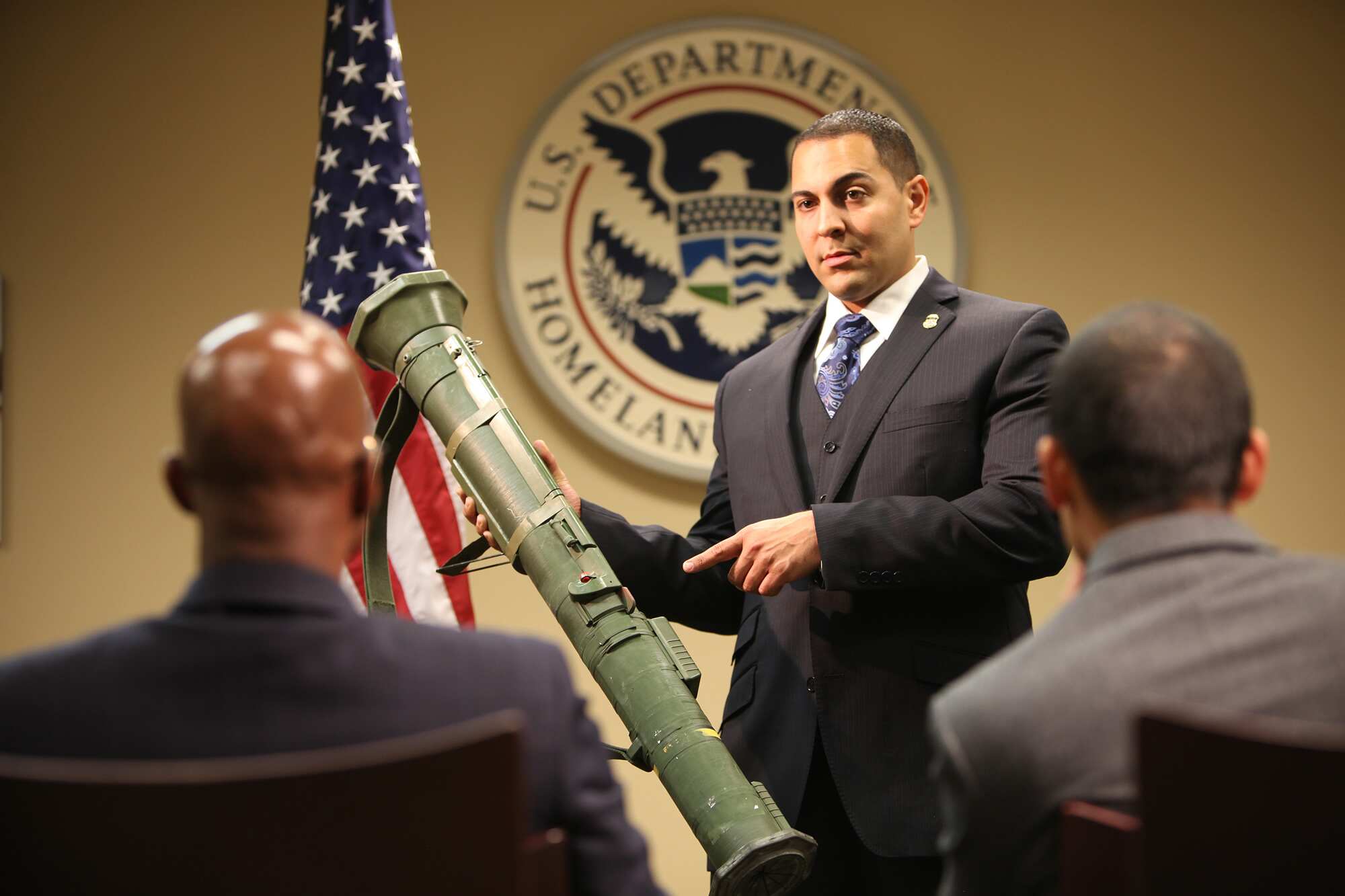
CPI Statistics and Accomplishments
In Fiscal Year (FY) 2019, HSI initiated 1,537 counterproliferation related investigations, affected 709 criminal arrests, obtained 531 criminal indictments, convicted 386 individuals, and executed 1,706 seizures for violations of various U.S. export laws and regulations. These result affirm the diligence and dedication of HSI agents assigned to CPI groups across the country who work some of the agency’s most complex, riveting, and strategically significant cases within HSI. The table below depicts key CPI program statistics in FYs 2017, 2018, and 2019:
| CPI Statistics | FY2017 | FY2018 | FY2019 |
|---|---|---|---|
| Case hours | 443,794 | 461,122 | 482,235 |
| Cases initiated | 1,440 | 1,269 | 1,537 |
| PSA outreaches | 1,085 | 1,035 | 1,556 |
| Arrests | 609 | 546 | 709 |
| Indictments | 412 | 433 | 531 |
| Convictions | 296 | 307 | 386 |
| Seizures | 1,176 | 1,101 | 1,706 |
HSI’s efforts in the CPI arena have led to successes on a global scale and have resulted in the following accomplishments:
- Disrupted the efforts of the Iranian regime to enhance their WMD and ballistic missile programs.
- Identified and dismantled pipelines used to smuggle U.S. weapons, unmanned aerial systems, and other military equipment to war zones in Syria, Yemen, and Afghanistan.
- Seized millions of dollars from entities actively violating American and international sanctions on North Korea and Venezuela.
- Countered China’s subversive efforts to acquire sensitive information and technology to advance their strategic long term economic and national security goals.
- Dismantled networks of front companies used by Russia to illegally acquire U.S. origin radiation hardened microchips.
- Combatted the cross-border smuggling of weapons to transnational criminal organizations in Mexico and South America.
Notable CPI Investigations:
The case examples below represent a sample of HSI’s successes in CPI in FY2019:
- Oct. 16, 2019 – Chinese national sentenced to 40 months in prison for conspiring to illegally export military- and space-grade technology from the United States to China
- Aug. 20, 2019 – Arms trafficker convicted in anti-aircraft missiles scheme and other arms offenses sentenced to 30 years in federal prison
- Aug. 16, 2019 – Unsealed warrant and forfeiture complaint seek seizure of oil tanker “Grace 1” for unlawful use of U.S. financial system to support and finance IRGC’s sale of oil products to Syria
- Jul. 19, 2019 – Export company executive pleads guilty to violating U.S. sanctions against Iran
- Jun. 28, 2019 – 25 arrests / 53 search warrants - weapons to South America
- Jun. 27, 2019 – California man charged with illegally exporting cesium atomic clocks to Hong Kong
- May 20, 2019 – Arrest of Ara Dolarian - former Fresno resident charged with illegally brokering the sale of military arms to a foreign government and money laundering
- Mar. 20, 2019 – Estonian national extradited from Estonia to face charges of illegal procurement of U.S. electronics
- Jan. 28, 2019 – Chinese telecommunications conglomerate Huawei and Huawei CFO Wanzhou Meng charged with financial fraud
- Oct. 1, 2018 – Si Chen, aka Cathy Chen – Pomona woman sentenced to federal prison in scheme to smuggle restricted space communications technology to China

Export Enforcement Coordination Center (E2C2)
The Export Enforcement Coordination Center (E2C2) was created in 2010 by Executive Order 13558 and serves as the primary forum within the federal government for executive departments and agencies to coordinate and enhance their export enforcement efforts. The E2C2 promotes a robust whole‐of‐government approach to export enforcement by ensuring interagency coordination, promoting multiagency collaboration, minimizing duplication of efforts and strengthening the critical link between law enforcement, the Intelligence Community and export licensing entities.
The E2C2 maximizes information sharing and assists partner agencies to detect, prevent, disrupt, investigate and prosecute violations of U.S. export control laws. The E2C2 has representation from eight U.S. government departments & 18 federal agencies. The E2C2 is administered by the Department of Homeland Security and is led by an interagency management team. This team currently includes a director, who is a full‐time senior officer of HSI, and two deputy directors: one from the Department of Commerce, Bureau of Industry and Security, and one from the Department of Justice, Federal Bureau of Investigation. Participants include representation from the Departments of Homeland Security, Commerce, Defense, Energy, Justice, State, Treasury, and the Office of the Director of National Intelligence.
Since its inception, the E2C2 has processed more than 8,000 deconfliction requests from across the export enforcement, licensing and intelligence communities. Currently, the E2C2 maintains a 51% deconfliction rate, meaning that more than half of all target submissions correlate to information owned by at least one other E2C2 partner agency. The E2C2 collaborative environment has been the impetus for numerous joint investigations and enhanced enforcement activities across the government.
